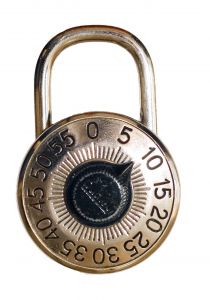 The second you connect to the internet you put yourself at risk. Scary thought, but we tend to forget just how vulnerable we are and the easy targets we become when we’re not careful about our safety on the internet.
The second you connect to the internet you put yourself at risk. Scary thought, but we tend to forget just how vulnerable we are and the easy targets we become when we’re not careful about our safety on the internet.
As an internet user you expose yourself on a daily basis to malicious software and the possibility of data theft. This includes phishing. Phishing scams use bogus e-mails and Web sites that seem legitimate but are actually designed to trick users into revealing personal and financial information. Computer criminals can then use the data to spy on or blackmail users, hijack their online accounts (including bank accounts), spread rumors, or operate under the victim’s identity.
According to our local Stellenbosch ABSA branch there are still some Stellenbosch University staff who fall prey to cybercriminals by clicking on phishing emails. To make sure you don’t become a victim, read more on phishing on IT’s self help wiki.
SOURCE: www.cnet.com
 Die oomblik wanneer jy aanlyn is, loop jy sekere risikos. Dit klink miskien oordrewe, maar ons is geneig om te vergeet hoe blootgestel en watter maklike teikens ons is vir kuberkriminele as ons nie bedag is op ons aanlynveiligheid nie.
Die oomblik wanneer jy aanlyn is, loop jy sekere risikos. Dit klink miskien oordrewe, maar ons is geneig om te vergeet hoe blootgestel en watter maklike teikens ons is vir kuberkriminele as ons nie bedag is op ons aanlynveiligheid nie.
As `n internetgebruiker stel jy jou daagliks bloot aan kwaadaardige sagteware en die moontlikheid van datadiefstal. Dit sluit kuberstrikroof (“phishing”) in. Hierdie tipe elektroniese rooftogte gebruik skelm e-posse en webwerwe wat wettig lyk, maar eintlik so opgestel is om gebruikers te mislei sodat hulle persoonlike en finansiële inligting onthul. Kuberkriminele gebruik dan die data om, onder andere, toegang te kry tot aanlynrekeninge (insluitende bankrekeninge) of die persoon se identiteit oor te neem.
Volgens die plaaslike Stellenbosch ABSA-tak is daar steeds Stellenbosch Universiteit personeel wat in die slaggat val en slagoffers word van kuberkriminele deur op “phishing” e-posse te kliek. Om seker te maak jy word nie een van hulle nie, lees meer oor “phishing” op IT se selfhelp wiki.
BRON: www.cnet.com
Tags: email, malware, online security, phishing

